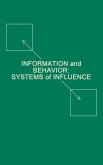In this book, Michael W. Kramer applies uncertainty reduction theory (URT)--a key theory in current communication scholarship--to the context of organizational communication. Examining URT and the range of research applicable to organizational settings, Kramer proposes a groundbreaking theory of managing uncertainty (TMU), which synthesizes prior research while also addressing its criticisms. Examples are provided to illustrate the principles of the TMU at both the individual and collective (group/organizational) levels of analysis. Original studies based on the theory show that it provides a useful extension of URT, addressing some concerns raised by critics of that earlier model. Kramer illustrates that, as a model in progress, TMU will change as new research and insights build upon it.
Managing Uncertainty in Organizational Communication assists readers in understanding and researching uncertainty in communication, which encourages additional changes and improvements to the model. It is of primary interest to scholars, researchers, and practitioners in organizational, interpersonal, and group communication.
Dieser Download kann aus rechtlichen Gründen nur mit Rechnungsadresse in A, B, BG, CY, CZ, D, DK, EW, E, FIN, F, GR, HR, H, IRL, I, LT, L, LR, M, NL, PL, P, R, S, SLO, SK ausgeliefert werden.









